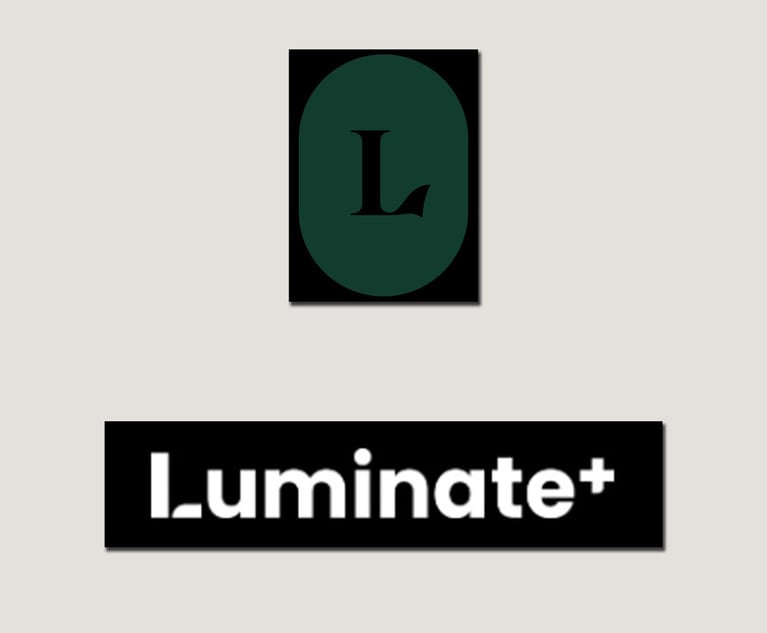Time to loosen up on corporate insider trading policies?
Some folksespecially those living in the states governed by the U.S. Court of Appeals 2nd Circuitmight believe that it's now okay to relax corporate insider trading policies. But don't do it.
March 31, 2015 at 08:00 PM
4 minute read
Some folks—especially those living in the states governed by the U.S. Court of Appeals 2nd Circuit—might believe that it's now okay to relax corporate insider trading policies. But don't do it.
Why would anyone even consider loosening up a corporation's insider trading policy? After all, the Securities and Exchange Commission (SEC) has had a string of conviction victories for insider trading tipper/tippee liability, including the high-profile conviction of former Goldman Sachs director Rajat Gupta.
The answer is the surprising victory the 2nd Circuit handed the defendants in United States v. Newman in 2014.
This decision came after a years-long court battle. Defendants Todd Newman, formerly of Diamondback Capital Management, and Anthony Chiasson, co-founder of Level Global Investors, were sentenced to jail time for allegedly trading on material, non-public information as tippees, in violation of federal securities laws.
These hedge fund portfolio managers traded on material non-public information that was given to them by their analysts. The information was originally shared amongst a group of analysts from different hedge fund firms via email.
You may be wondering why these analysts would trade tips with their competitors. According to one Bloomberg article, an ex-analyst for Diamondback Capital Management, Jesse Tortora, testified that it “allowed us to be more effective, more efficient and more profitable than working alone.”
So, were Newman and Chiasson guilty of violating the rules against insider trading under a theory of tippee liability?
To the surprise of many, the 2nd Circuit said no. The court held that for tippee liability to exist, the tipper must have gained substantial personal benefit from giving the tip, and the tippee must have knowledge about that substantial personal gain.
In Newman, the 2nd Circuit declared there wasn't sufficient evidence to show that the defendants had knowledge that the tippers gained personal benefit, nor was there a case to show that the tippers gained substantial personal benefit at all. The fact that the defendants were far removed from the original source of information no doubt helped the court reach this conclusion.
The government tried to show that there was a personal benefit afforded to the source of information in the form of friendship and career counseling. The court was not impressed by the government's reasoning, explaining that under this logic “practically anything would qualify” as a benefit. In addition, there was no proof the defendants believed that the original tippers had gained any personal benefit in exchange for the information they supplied.
Even so, this case should not be taken as encouragement to loosen up corporate insider trading policies.
First of all, the 2nd Circuit only represents a handful of states. Other states may decline to follow Newman. Second, the government is appealing the Newman decision, so it may not remain the law of even the 2nd Circuit. Third, the SEC filed an amicus brief in support of the plaintiff's appeal on the matter.
In February, the head of SEC's enforcement division, Andrew Ceresney, was quoted as saying that he wasn't too worried about the decision. In fact, according to one report, he said that the SEC could adapt to the ruling, and that the agency holds a lower burden of proof when it comes to these matters versus criminal prosecutors.
Finally, the “win” isn't getting an acquittal after years of expensive litigation. The real win is never having to defend your behavior in a court of law.
Conservative corporate insider trading policies and appropriate training can help your employees achieve this real win by not engaging in a transaction that may draw regulatory scrutiny.
This content has been archived. It is available through our partners, LexisNexis® and Bloomberg Law.
To view this content, please continue to their sites.
Not a Lexis Subscriber?
Subscribe Now
Not a Bloomberg Law Subscriber?
Subscribe Now
NOT FOR REPRINT
© 2025 ALM Global, LLC, All Rights Reserved. Request academic re-use from www.copyright.com. All other uses, submit a request to [email protected]. For more information visit Asset & Logo Licensing.
You Might Like
View All
Global Software Firm Trying to Jump-Start Growth Hands CLO Post to 3-Time Legal Chief

In-House Legal Network The L Suite Acquires Legal E-Learning Platform Luminate+

Antitrust in Trump 2.0: Expect Gap Filling from State Attorneys General
6 minute readTrending Stories
- 1NJ Supreme Court Clarifies Affidavit of Merit Requirement for Doctor With Dual Specialties
- 2Whether to Choose State or Federal Court in a Case Involving a Franchise?
- 3Am Law 200 Firms Announce Wave of D.C. Hires in White-Collar, Antitrust, Litigation Practices
- 4K&L Gates Files String of Suits Against Electronics Manufacturer's Competitors, Brightness Misrepresentations
- 5'Better of the Split': District Judge Weighs Circuit Divide in Considering Who Pays Decades-Old Medical Bill
Who Got The Work
J. Brugh Lower of Gibbons has entered an appearance for industrial equipment supplier Devco Corporation in a pending trademark infringement lawsuit. The suit, accusing the defendant of selling knock-off Graco products, was filed Dec. 18 in New Jersey District Court by Rivkin Radler on behalf of Graco Inc. and Graco Minnesota. The case, assigned to U.S. District Judge Zahid N. Quraishi, is 3:24-cv-11294, Graco Inc. et al v. Devco Corporation.
Who Got The Work
Rebecca Maller-Stein and Kent A. Yalowitz of Arnold & Porter Kaye Scholer have entered their appearances for Hanaco Venture Capital and its executives, Lior Prosor and David Frankel, in a pending securities lawsuit. The action, filed on Dec. 24 in New York Southern District Court by Zell, Aron & Co. on behalf of Goldeneye Advisors, accuses the defendants of negligently and fraudulently managing the plaintiff's $1 million investment. The case, assigned to U.S. District Judge Vernon S. Broderick, is 1:24-cv-09918, Goldeneye Advisors, LLC v. Hanaco Venture Capital, Ltd. et al.
Who Got The Work
Attorneys from A&O Shearman has stepped in as defense counsel for Toronto-Dominion Bank and other defendants in a pending securities class action. The suit, filed Dec. 11 in New York Southern District Court by Bleichmar Fonti & Auld, accuses the defendants of concealing the bank's 'pervasive' deficiencies in regards to its compliance with the Bank Secrecy Act and the quality of its anti-money laundering controls. The case, assigned to U.S. District Judge Arun Subramanian, is 1:24-cv-09445, Gonzalez v. The Toronto-Dominion Bank et al.
Who Got The Work
Crown Castle International, a Pennsylvania company providing shared communications infrastructure, has turned to Luke D. Wolf of Gordon Rees Scully Mansukhani to fend off a pending breach-of-contract lawsuit. The court action, filed Nov. 25 in Michigan Eastern District Court by Hooper Hathaway PC on behalf of The Town Residences LLC, accuses Crown Castle of failing to transfer approximately $30,000 in utility payments from T-Mobile in breach of a roof-top lease and assignment agreement. The case, assigned to U.S. District Judge Susan K. Declercq, is 2:24-cv-13131, The Town Residences LLC v. T-Mobile US, Inc. et al.
Who Got The Work
Wilfred P. Coronato and Daniel M. Schwartz of McCarter & English have stepped in as defense counsel to Electrolux Home Products Inc. in a pending product liability lawsuit. The court action, filed Nov. 26 in New York Eastern District Court by Poulos Lopiccolo PC and Nagel Rice LLP on behalf of David Stern, alleges that the defendant's refrigerators’ drawers and shelving repeatedly break and fall apart within months after purchase. The case, assigned to U.S. District Judge Joan M. Azrack, is 2:24-cv-08204, Stern v. Electrolux Home Products, Inc.
Featured Firms
Law Offices of Gary Martin Hays & Associates, P.C.
(470) 294-1674
Law Offices of Mark E. Salomone
(857) 444-6468
Smith & Hassler
(713) 739-1250







